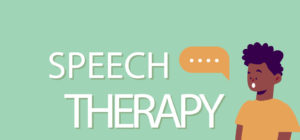Do you have a child who has a few words mastered but only says them occasionally? Is there a lot of whining when they want something? Your toddler might benefit from increased motivation and more opportunities to practice speech throughout the day. Here are some valuable tips and tricks to help your toddler become a more confident and expressive communicator.
The Expectant Pause technique is perfect for practicing during repetitive games or songs. You can also use it at any point in the day when your toddler is about to say a word they know.
Stopping Short During a Familiar Song, this approach is a variation of the Expectant Pause. Some songs work exceptionally well for this, like “Ring Around the Rosies” or “Old McDonald.” Pause just before a word your child knows and see if they’ll fill in the blank.
Don’t Anticipate Their Every Need, while it’s comforting to know your child’s needs, anticipating them may not encourage speech. Act a bit confused, even if you know what they want. This encourages them to communicate. If they resort to whining or pointing, guide them by saying, “Oh, you want the _____, say _____.”
Sabotage, think about setting up opportunities around the house that require your child to communicate can be surprisingly effective.
Give Repeated Opportunities at Meals/Snacks, so instead of giving your child a full bowl of their favorite snack, offer a small amount and say, “When you want more, say ‘more.'” Waiting them out encourages them to vocalize their needs.
Get Silly, simply encourage your child to practice making fun sounds. This playful approach can help them become more comfortable with speech.
Give Out Pieces of a Toy One-by-One, when playing with toys with multiple pieces, be in control of the pieces. Keep them out of your child’s reach so they have to request the next piece, promoting communication.
Encourage Any Attempt to Vocalise, don’t expect perfect pronunciation. Celebrate any effort, even if it’s a close approximation. For example, if they say “O” for “go” or “car” instead of “truck,” praise their attempt and say, “Good try! It’s like a car – it’s called a truck!”
Turn off the T.V. or Tablet (or Limit Usage), while some educational programs exist, nothing beats interaction with a parent or caregiver for language development. Excessive screen time can lead to delays in communication, attention span, and school performance. Opt for meaningful interactions to support your child’s speech development.
By implementing these tips and tricks into your daily routine, you can create an engaging environment that encourages your toddler to become a confident and capable communicator.




